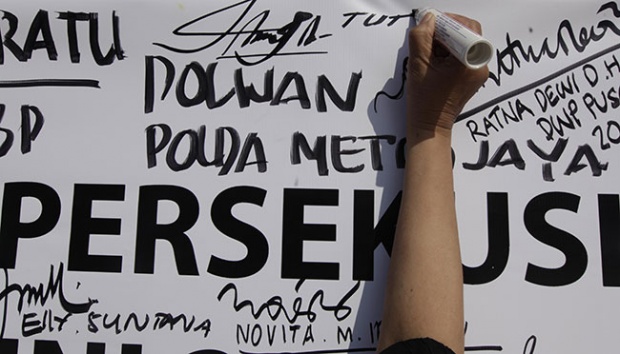
TEMPO.CO, Jakarta - This nation has truly failed to guarantee the freedom of religion and faith. Although our constitution clearly guarantees every citizen the right to embrace and practice his or her religion and faith, the persecution of minorities has persisted. The attack on Ahmadis in East Lombok, West Nusa Tenggara, two weeks ago shows the states powerlessness in protecting these fundamental freedoms.
Even more worrying is the fact that Ahmadis in East Lombok have been subjected to violent attacks three times. Ironically, while we celebrated 20 years of reform, eight homes owned by Ahmadis in East Sakra, East Lombok, were destroyed and several motor bikes were ravaged. During the attack, 21 women and children were terror-stricken.
This type of violence does not only happen to Ahmadis. There have been hundreds of attacks against this nations minorities. According to the NGO Setara Institute, there have been 155 cases of intolerance in 29 provinces in the last 10 years. The majority of these had to do with [what were seen as] religious blasphemy, with Ahmadis and Shias victimized most frequently.
After every single incident of persecution, the victims are always the ones who gets the worse treatment. They have to be relocated and live in shelters, their quality of life diminished. If they wish to return to their homes, they are forced to fulfill conditions applied by the radical group that attacked them. Meanwhile, perpetrators of these attacks are almost never subjected to legal consequences.
The lack of legal action following such incidents has been caused by the continued implementation of law on blasphemy as regulated under Article 156-a of the Criminal Code, and Articles 1, 2 and 3 under Law No. 1/PNPS/1965 on the Prevention of Misuse of and/or Defamation of Religion. These articles give the state authority to monopolize religious interpretations and to determine which teachings are right and which are misguided.
Take a look at Article 1 of the law on religious blasphemy, which is always used as the basis for punishing those seen as different from the majority. Minority groups are always the victims of discrimination because their interpretations of religion are seen as disrespectful. In the end, not only are they punished because of their beliefstheir social and political rights as well as their right to life are also taken away.
The Constitutional Court tried to change this in 2013, but its efforts came to nothing. Although the Court declared the religious blasphemy law as still necessary, judges asked for the law to be improved so that it cannot be used to persecute minority groups. But instead of revising the law, the government and the House of Representatives expanded the article in the proposed Draft Criminal Code.
Violence against minorities is at odds with the spirit of the state philosophy Pancasila and the Constitution. Our inability to prevent such violence is the seed for intolerance and radicalism. If this is allowed to continue, the Indonesian core value of tolerance will no longer be relevant.























